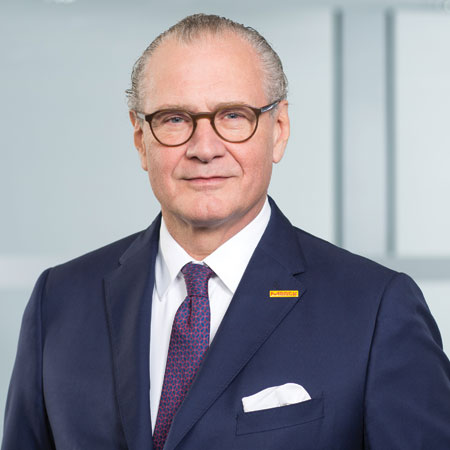Mavenclad Is Merck KGaA Bright Spot As Q2 Sales Slip
Executive Summary
With strong quarterly sales of Mavenclad in Europe, and a recent re-filing of the drug with the FDA, Merck KGaA continues to play the waiting game for top-line growth to return as it banks on the new addition to its MS franchise.
Foreign currency headwinds and declining sales of Rebif (interferon beta-1a) have done Merck KGAA no favors in Q2, but the German group hopes that the early promise shown by its newer multiple sclerosis drug Mavenclad (cladribine) will lead it back to growth.
Rebif sales came in at a respectable €383m for the quarter, falling by 4.2% organically but also hit by negative foreign currency effect of another 5.7%. Indeed, market share within interferons is stable due to high retention rates and known long-term track record, Merck said.
However the MS market is changing, as clearly witnessed by the stellar launch of Roche's disease-modifying agent Ocrevus (ocrelizumab), and the further decline of Rebif seems inevitable. Datamonitor Healthcare’s PharmaVitae team predicts that the drug will lose sales of $849m between 2016 and 2026.
On the bright side, Mavenclad generated sales of €20m in the second quarter, after being approved in Europe in August 2017. On an analyst call, CEO Stefan Oschmann said the company was seeing patients in Europe switching from other agents such as Novartis AG's Gilenya (fingolimod) to Mavenclad. “We see a very good, very decent, performance in the UK, given the NICE recommendation. We feel that our market access strategy is a good one and the majority of payers have reacted very positively to it,” he added. (Also see "Merck KGaA Says Outcomes-Based Pact With NHS England 'Precedent-Setting'" - Pink Sheet, 16 Nov, 2017.)
Edward Thomason, Datamonitor Healthcare company analyst, said that Mavenclad was set to reach “high double-digit sales in its first year on sale after a strong launch quarter with sales driven by uptake in Germany and the UK.”
 )
)
Key to the drug's growth, however, is the US market. Just over a week ago, Merck revealed that a resubmission of the New Drug Application for Mavenclad has been accepted for filing by the FDA. The refiling is in response to the complete response letter issued by the agency way back in 2011 requesting "an improved understanding of safety risks and the overall benefit-risk profile."
The package resubmitted to the FDA includes close to 12,000 patient years of data and up to 10 years of safety data in some patients. This, plus strong uptake in Europe, suggests that if approved in the US, Mavenclad could be well become a blockbuster - Merck has repeatedly forecast annual peak sales of €500-700m, excluding the US.
Oschmann also divulged that the company is still “actively pursuing partnering projects” for another MS candidate, the BTK inhibitor evobrutinib, but would not be drawn on any details.
Another key treatment for Merck is the PD-L1 inhibitor Bavencio (avelumab), which brought in €17m, compared with €4m in Q2 2017. Sales of the Pfizer-partnered immunotherapy "are now slowly creeping up with new global market launches, although its current commercial value is limited by the small patient population of Merkel cell carcinoma,” for which it is approved, said Datamonitor Healthcare's Thomason. He told Scrip that “I expect annual sales to remain in double digits until it gains label expansions into larger patient populations, such as in gastric cancer maintenance.”
“Merck’s healthcare strategy for future growth hinges on Bavencio’s successful development as an immunotherapy, and failure to do so will severally damage its future outlook,” he added.
Overall for the quarter, sales at Merck's healthcare division decreased by 0.2% to €1.6bn and Oschmann described 2018 as a year of “transition with many challenges." For the full year, the company is forecasting "a moderate organic net sales increase of 3% to 5%."
Speaking to CNBC after the results were announced, CFO Marcus Kuhnert confirmed that deleveraging the company’s debt of €10.7bn remained a “top priority,” stating that the company had “made some good progress but there is still a way to go” and because of this, it will refrain from entering into any M&A activity over €500m until the end of 2019.
"We will be back to top-line growth from 2020 onwards," he added.
